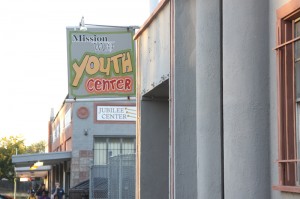Staff Writer
You would think a strong interest in religion and family would be a good thing, but a Baylor scholar has identified at least one negative effect: interest in religion and family do not facilitate secular and civic engagement.
Dr. Young-Il Kim, a Postdoctoral Scholar at the Baylor Institute of for Studies of Religion, published a study in August an online edition of Social Science Research journal titled Bonding alone: Familism, religion, and secular civic participation.
Kim co-authored the study with his dissertation advisor Dr. W. Bradford Wilcox from the University of Virgina.
“I looked at the connections between traditional family values and secular civic participation,” Kim said. “When you hold strong orientation toward marriage and the family, you’re likely to decrease your involvement in secular voluntary associations.”
Kim said his research took unique approach. He said many do not study how an interest in religion and family might affect civic participation.
“When you look at the literature, there is much research on religion and civic engagement and there are lots of research articles on religion and family, but very few look at the connection between family-centered orientation and civic participation and no studies have ever examined interconnections between familism, religion and secular civic participation,” Kim said.
“Given that religion and family as social institutions are strongly tied to each other, I wanted to see how these bonds might inhibit involvement in secular organizations.”
Kim said he found religious people without a strong sense of familism tend to be members of secular organizations.
People with a strong sense of familism, a strong commitment to lifelong marriage and childbearing, religious congregations reinforce staying almost exclusively within their social circle.
“This might be news to family-oriented people who are also active in their religious congregations.” Kim said.
“Those people may be anxious about the well-being of their family and try to protect their families against secular influences. Or they may simply have little time left for secular involvement beyond religious participation. For whatever reasons, familistic people tend to have more exclusive sociability.”
Assistant Professor of Sociology Dr. Jeremy Uecker said Kim’s study does a good job of showing how commitment to family and religion conflict with participation in secular activities.
“It’s an impressive study,” Uecker said in an email to the Lariat. “Kim and Wilcox compellingly show that strong traditional commitments to marriage and family are at odds with participation in civic life, and that this is exacerbated by participation on civic engagement. It can lead to further insularity among those with strong familistic attitudes.”
Kim said his interest on the added affect of religion on family and civic engagement stemmed from his own involvement in his church.
“I don’t really think of my research to change people’s behavior,” Kim said.
“If anything, I must first change myself. It would require some level of intentionality though, particularly living in a city like Waco.”







